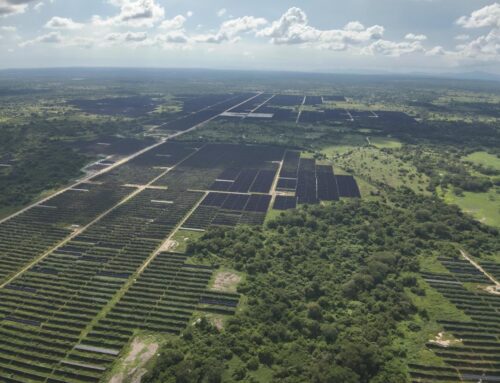Report reveals countries pouring unprecedented resources into new energy era — and it’s al
April 28, 2025
Members of the European Union are set to bolster their renewable energy capacity by a record amount in the coming year. Reporting by Reuters says that EU countries are projected to add 89 gigawatts of renewable energy across the bloc in 2025.
Russia’s ongoing conflict with Ukraine has been a catalyst for the European Union’s push toward renewable energy. As members of the bloc have pledged to divest entirely from importing dirty energy sources from Moscow by 2027, though, as the Guardian reports, actually keeping that promise has proved difficult. Still, a firm plan for excluding Russia by 2027 will be presented in May.
The surge in renewable energy capacity will primarily come from solar (70 GW), with wind accounting for the remainder (19 GW). Across the continent, EU member states are implementing innovative approaches to increase renewable energy sources. For example, France has mandated that any car park larger than 1,500 square meters must have solar panels installed, per pv magazine.
Germany, the EU’s most populous member state and one that has been heavily reliant on Russian dirty energy, has adopted an innovative approach to solar energy. Solar panels are typically installed on rooftops, but in Germany, they’re now being placed on balconies. According to Canary Media, over half a million were installed in 2023.
Spain and Italy are particularly well-suited for solar energy due to their sunny climates. The former has tripled its wind farms and increased its solar capacity eightfold since 2008. Spain is the fourth-largest country in population but the second-largest producer of renewable energy on the continent.
As the BBC reports, Madrid is producing so much renewable energy that it could hinder investment by utility companies. Southern Italy is another literal hotspot for solar energy, as Rome punches well above its weight in clean energy production.
While the overall picture is certainly moving in the right direction, several challenges lie ahead, and Europe still needs to increase its clean energy capacity to meet its climate goals. One issue is the lengthy application and legal process, which can delay the construction of wind farms by years. Another aspect is the uncertainty in the global market and disruptions to supply chains.
Join our free newsletter for good news and useful tips, and don’t miss this cool list of easy ways to help yourself while helping the planet.
Search
RECENT PRESS RELEASES
Related Post











